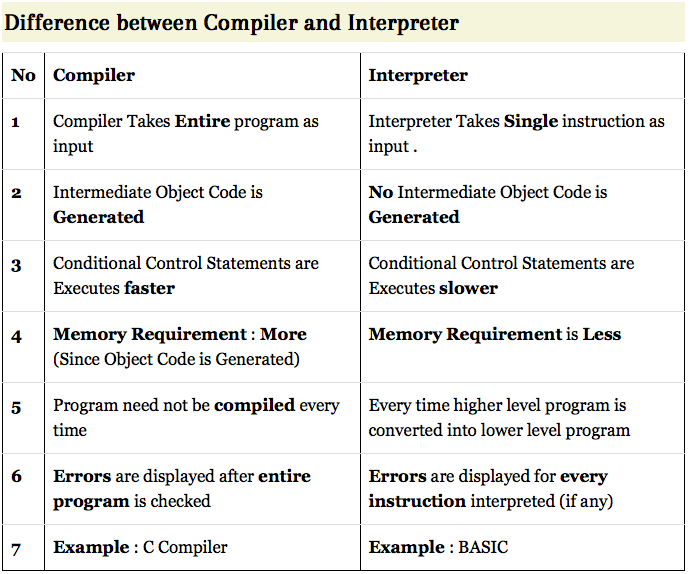-
Details
-
Hits: 20657
Syllabus Detail
- Compiler / Interpreter Difference 12 ATAR
Background
- Compilers and interpreters are different forms of programs
- Both work to allow us to run programs and perform various functions
- Their methods of working however are slightly different
Interpreters
- An interpreter is a program that analyzes and executes a program line-by-line
- This means that instead of building the whole program before running, it runs each line sequentially
- The overall execution time is slower using an interpreter
- Interpreters are great for debugging, as they will execute the program line-by-line up until an error occurs
- This makes bug finding easy and provides useful error feedback
- Languages such as Java, Ruby, Python and Visual Basic use interpreters
Compilers
- A compiler is a program that translates and executes another program in whole
- The compiler works to first translate the entire program into machine code
- Execution time is generally faster than using interpreters as the code is compiled as one block
- Compilers use less system resources (memory) than interpreters
- Error messages are only produced after the whole program has been analyzed, hence debugging is comparatively harder
- Langauges such as BASIC, C++ and Objective-C use compilers

Further Research
- Read ProgramWiz's article on Interpreter Vs Compiler here
- Read TechWelkin's article on Compiler vs. Interpreter here
Worksheet and Practice (yet to be added)
Found an error or have an enhancement? Please let us know via this contact form

